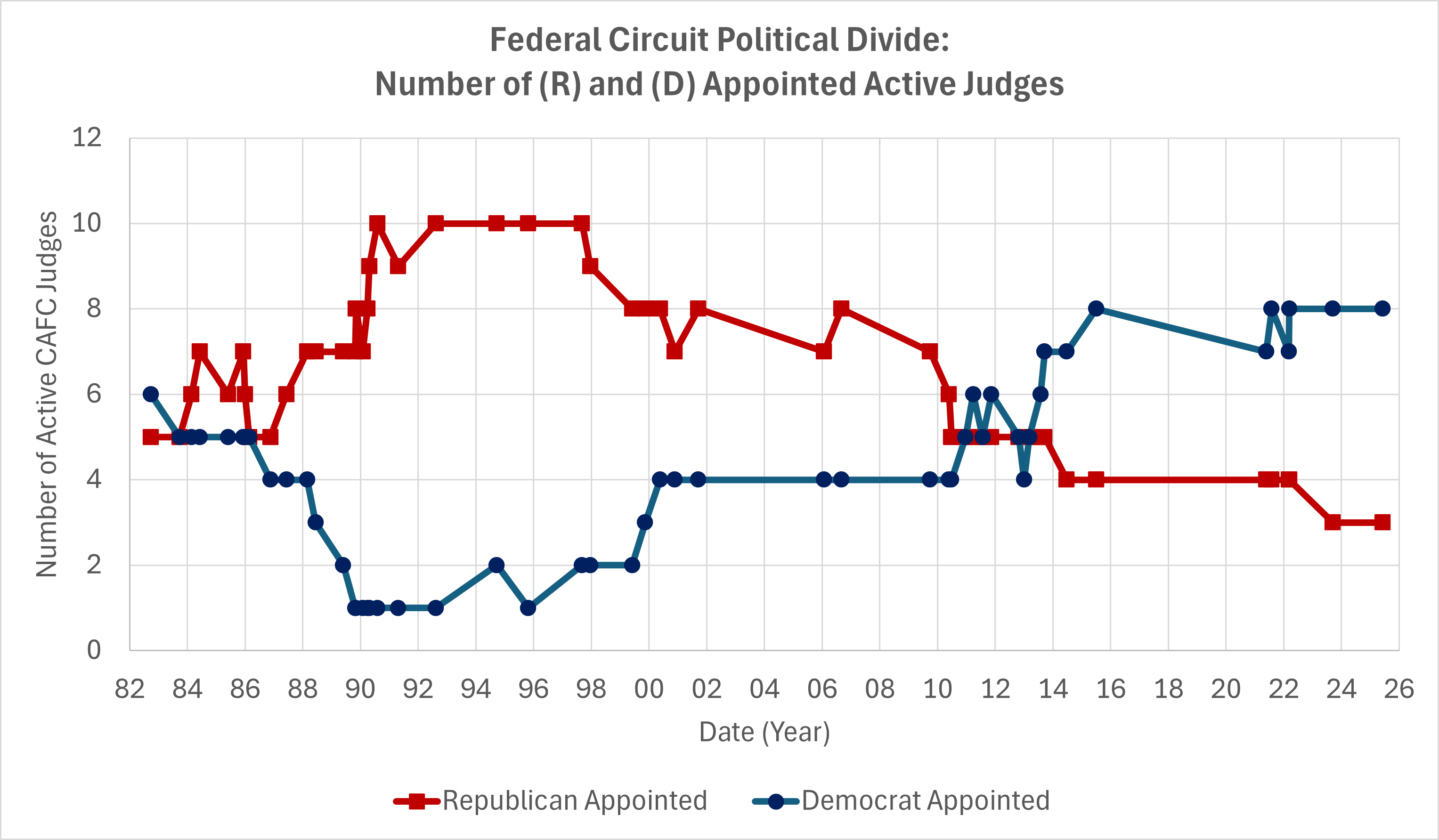by Dennis Crouch
The United States Court of Appeals for the Federal Circuit stands today with a dramatically different judicial composition than at any point in its 43-year history. As of June 2025, the court comprises eleven active judges—only three appointed by Republican presidents and eight by Democratic presidents, representing a 73% Democratic majority. This represents a complete reversal from the court’s peak Republican era in the early 1990s, when Republican appointees held ten of eleven active seats. The court’s current composition has taken on heightened significance as it confronts one of the most politically charged cases in its history: V.O.S. Selections v. Trump, challenging President Trump’s global tariff program under the International Emergency Economic Powers Act (IEEPA). The Federal Circuit’s response so far has been as a collective institution—proceeding en banc from the outset and issuing unanimous per curiam orders—reflects institutional awareness of political vulnerabilities that historically patent-focused courts rarely confront.
The chart above illustrates the evolution of the Federal Circuit’s composition since its inception. The court began in October 1982 with a modest Democratic edge of six to five active judges. However, the subsequent span of Reagan and Bush administrations rapidly transformed the court’s ideological balance. This culminated in an extraordinary 10-1 Republican majority by 1990—the most lopsided partisan composition in the court’s history. Republican dominance persisted throughout the 1990s, with the court maintaining between seven and ten Republican appointees against only one to four Democratic appointees. The turning point came in the early 2000s as senior status and retirements began reshuffling the court’s composition. Democratic appointees steadily increased from 2000 onward, reaching parity around 2010 and achieving majority status by 2015. The trend has continued unabated, with the current 8-3 Democratic majority representing the inverse of the court’s 1990s Republican dominance. Notably, none of the three remaining Republican appointees were named by President Trump, leaving the court without any judges appointed by the current president whose policies it must now review. The court’s partisan balance has been further complicated by the ongoing suspension of Judge Pauline Newman, the longest-serving non-senior federal appellate judge, who was suspended by her colleagues in September 2023.


